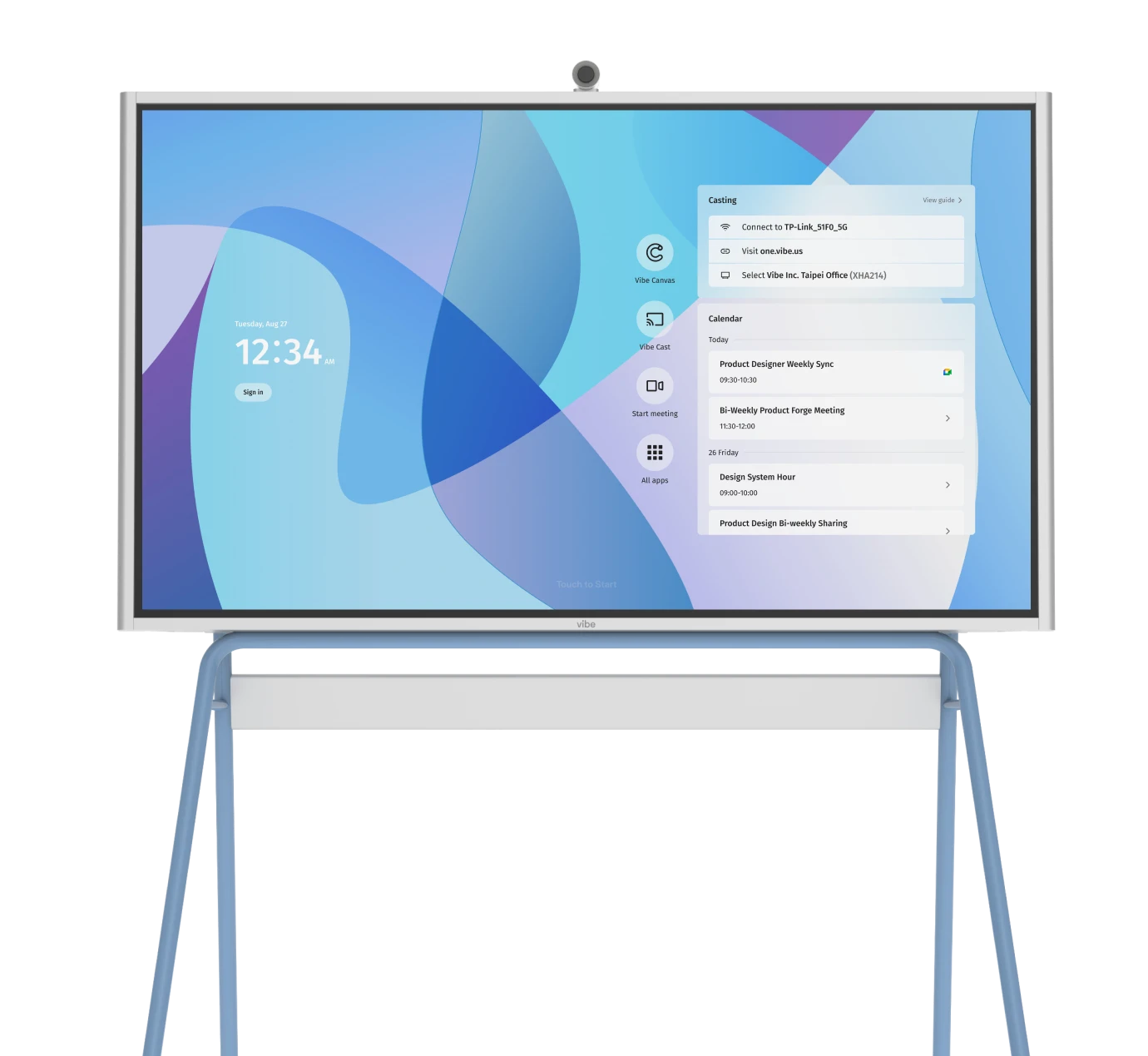Many of us still remember when tech in the classroom meant overhead projectors and heavy box TVs strapped to wheelie carts. To say we’ve come a long way since then would be an understatement — in fact, the rising standard for classroom tools designed to improve student engagement makes everything before it seem fairly primitive by comparison.
Remote and hybrid learning have created an enhanced need for digital tools in the classroom, but even standard in-person classes have much to gain from including digital tools in everyday lessons. Here are 8 of the best tools available right now for teachers looking to incorporate more interactive technology into their curriculum.
1. Vibe Smart Whiteboard Unlocks Student Engagement
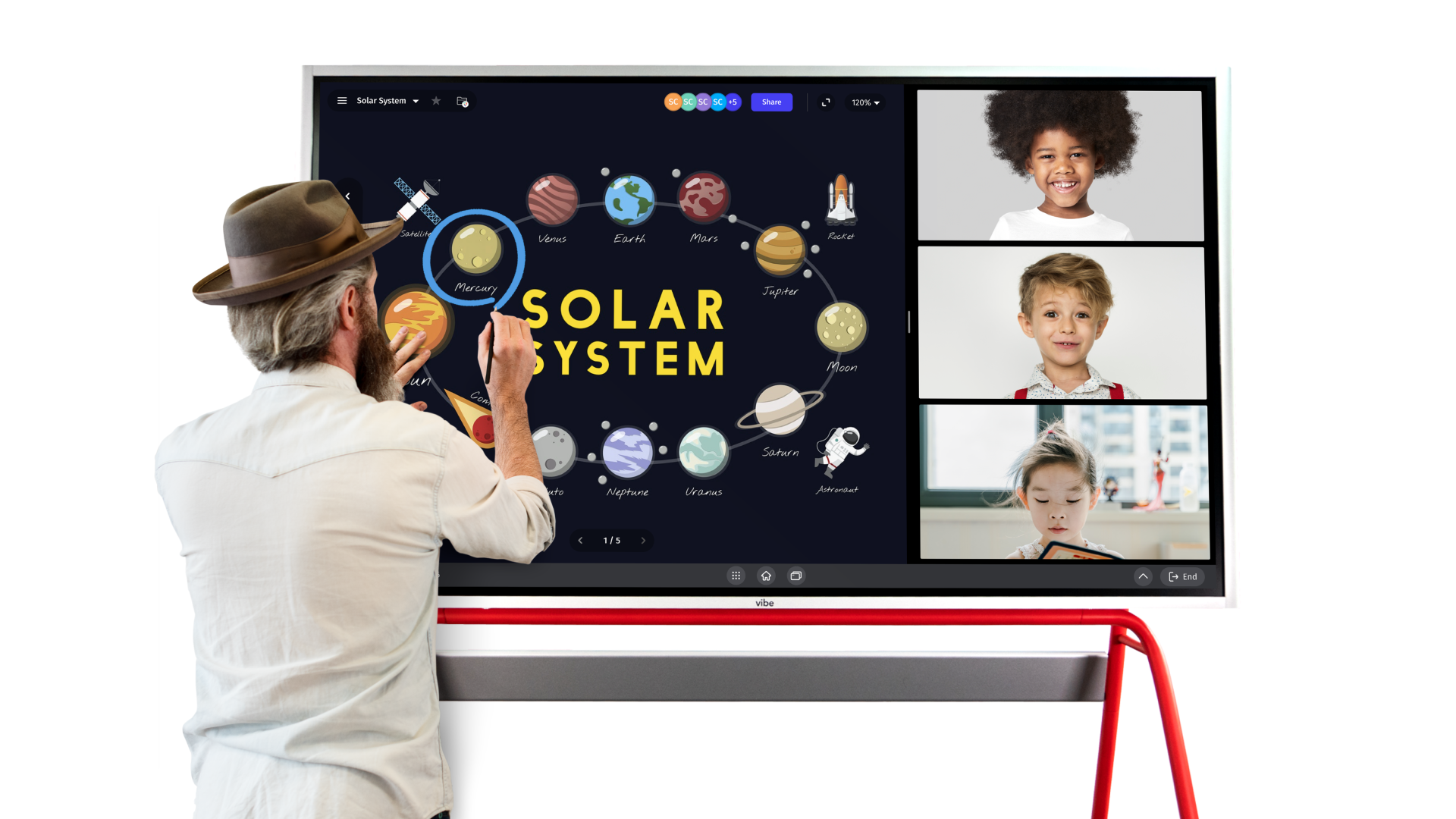 students learning on a Vibe board
students learning on a Vibe boardThe limits of the traditional whiteboard are being seen more than ever today. The space is limited, nothing is saved, and it’s difficult to record or display to remote students. Interactive whiteboards like the Vibe Smart Whiteboard allow teachers to integrate videos, interactive games and highlighted information into their daily lessons while giving students the opportunity to mark up and engage with presentations with the teacher on the smartboard, or from their own devices at home.
These interactive elements aid in holding students’ attention — plus, research shows drawing is a particularly effective way to facilitate comprehension and retention, nearly doubling the amount retained after a lesson. Vibe’s interactive components provide a nice bit of visual flair — and they also enable teachers to present new information in a more engaging fashion, providing remote students with hands-on opportunities more closely aligned to what their in-person peers experience.
With an infinite Canvas (that won’t be erased before the next class period by accident), integrations with many useful learning apps and increased accessibility for hybrid learners to engage with learning materials, Vibe Smart Whiteboards are made for unlocking student engagement in the classroom.
2. Blackboard
A key challenge for any teacher attempting to modernize lesson plans in this era of hybrid learning is the mode by which they connect to their students. Since the dawn of the pandemic in 2020, several apps and platforms have emerged to facilitate remote communication (read more about eight of the most popular video conferencing tools). However, a few of these platforms have combined the functionality of video conferencing with extremely useful online classroom management tools.
Blackboard Collaborate gives your lesson material a digital home base. This online course repository is a hub for all your remote course information. It also facilitates communication among teachers, students and parents and makes it easy to keep track of upcoming due dates through an intuitive online portal. Blackboard also simplifies the process of connecting with students about missed assignments or sick days and enables educators to submit lecture recordings for students catching up on missed material.
Blackboard-style programs have become something of a mainstay in higher education, but K-12 educators can also see benefits to student engagement by incorporating this tool into their classes.
3. Quizlet
Ease of use is among the biggest factors to consider when deciding whether a tool is useful for student engagement. If an app complicates or sidetracks lessons instead of aiding them, students will quickly lose interest. In terms of educational tools with simple functionality, few are more intuitive and reliable than Quizlet.
Quizlet helps you gamify material, quickly. It turns lecture information into flashcards, quizzes and a variety of study modes that help students memorize and apply information at their own pace. It also lets teachers view progress through a simple dashboard. When it comes to study help and additional resources, Quizlet is unmatched — the tool offers 500 million study sets created by other teachers (and students) to streamline the creation of games and quizzes specific to your classroom.
4. TED-Ed

It’s one thing to admit we need to incorporate video into lesson plans and another to find reliable resources of quality information built just for K-12 students. By now, it’s no secret students will generally respond favorably to visual aids, which makes TED-Ed all the more valuable to teachers looking for a wealth of pre-made quality video content.
TED-Ed presents a wide range of subjects in classic TED Talk format, condensing tons of valuable info down to bite-sized videos. The site hosts content for elementary learners, college courses and everything between — all easily sortable and created with the classroom in mind, and all easily accessible from a Vibe Smart Whiteboard!
5. Photomath
There’s probably no way to quantify which subjects have the hardest time with student engagement, but if there were, math teachers are the ones we’d trust to figure it out. Thank goodness for Photomath, which uses AI to identify math problems and generate easily explained solutions.
Both traditional and remote students need hands-on support when it comes to solving difficult equations and learning new mathematical functions. Photomath has the ability to scan, analyze and offer multiple solving methods for a typed or handwritten math problem, highlighting where a student may be struggling and how to overcome knowledge gaps in search of a solution. Access Photomath on your Vibe Smart Whiteboard to help students quickly learn to solve their most difficult problems.
6. Duolingo for Schools
There are tons of app-based resources out there for teachers to create more engaging course material. Perhaps the most well-known in the fun foreign-language learning space is Duolingo, a genius app built to gamify vocabulary and grammar-building piece by piece. Few learning apps have refined the learning-as-a-game formula as well as Duolingo, and even fewer are available for free.
Beneath its cast of charming cartoon helpers aiding students through their latest quiz is an effective product designed for schools and adaptable to each individual learners’ pace. The app employs a variety of exercises to keep things fresh and encourage students to move forward through different modes. Duolingo teaches students to naturally pick up on language skills through listening exercises, matching games, flashcards and even timed quizzes, covering anything from common foods to pronouns and plural forms.
7. Khan Academy

You know a digital tool is an effective tool for student engagement when people use it in their spare time. Such is the case with Khan Academy, the non-profit organization stocked with world-class educational materials available to students and teachers free of charge. Khan Academy combines a library of awesome content with the ability for teachers to customize a specific curriculum for their classroom.
It’s also a lot more than just a catalog of pre-made material — the whole operation is designed to coexist with the modern classroom. The Khan Academy dashboard visualizes student progress and makes these insights available to teachers for easy tracking and identifying key areas of interest. Students don’t always make it known when a subject intrigues them (it’s much easier to tell when they’re bored), but the Khan Academy tools give educators a useful window into which material most engages students when they’re given the freedom to explore. Access Khan from your Vibe Smart Whiteboard to use with the entire class.
8. NowComment
As impressive as digital tools have become, recreating the traditional in-person learning environment for an online class still poses a challenge. Introducing a digital discussion board is a good way to mend the often disconnected nature of a remote classroom and engage students in a productive conversation.
That’s the role free-to-use platforms like NowComment aim to serve. An excellent resource for educators to stoke discussion, NowComment is both an online forum and a collaboration tool. Teachers can post links to TED talks or relevant readings, while students are free to respond with marked-up text and discussions. The platform can play host to course material, but can also facilitate brainstorming sessions and encourage more social interactions for students who may feel isolated by remote learning.
—
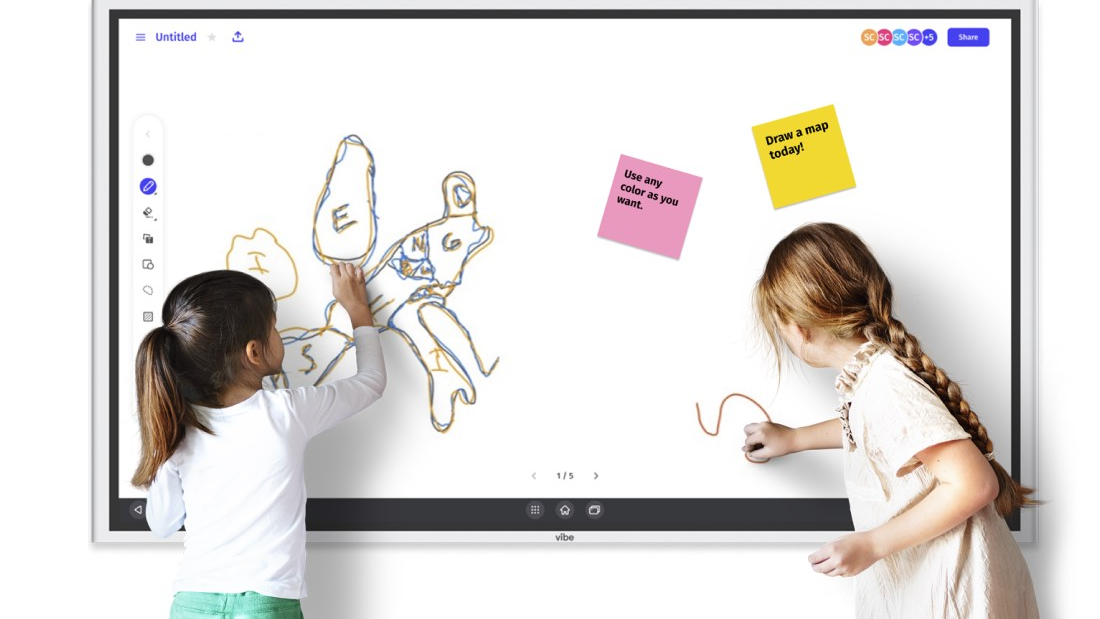 Students drawing on a Vibe Smartboard
Students drawing on a Vibe SmartboardIntegrating technology into the classroom requires flexibility, but the payoff can be tremendous. Engaging with students using the tools above can breathe new life into their studies and transform negative attitudes toward academics.
Our team at Vibe is dedicated to building the best available teaching tools for educators at every level. Explore Vibe’s FAQs for Teachers and School Administrators to learn how Vibe Smart Whiteboards can promote greater student engagement for remote, in-person, and hybrid learners.



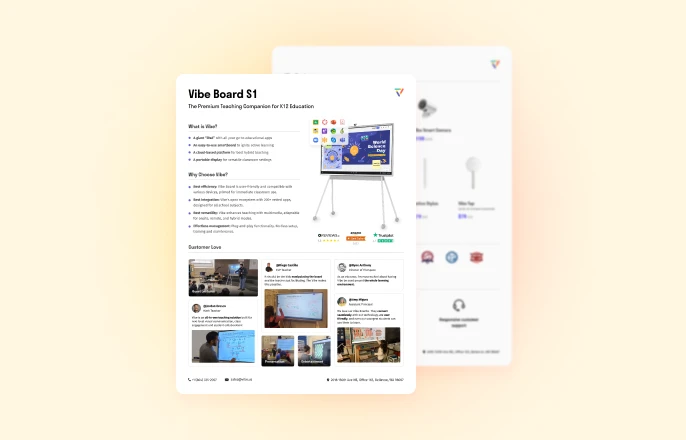

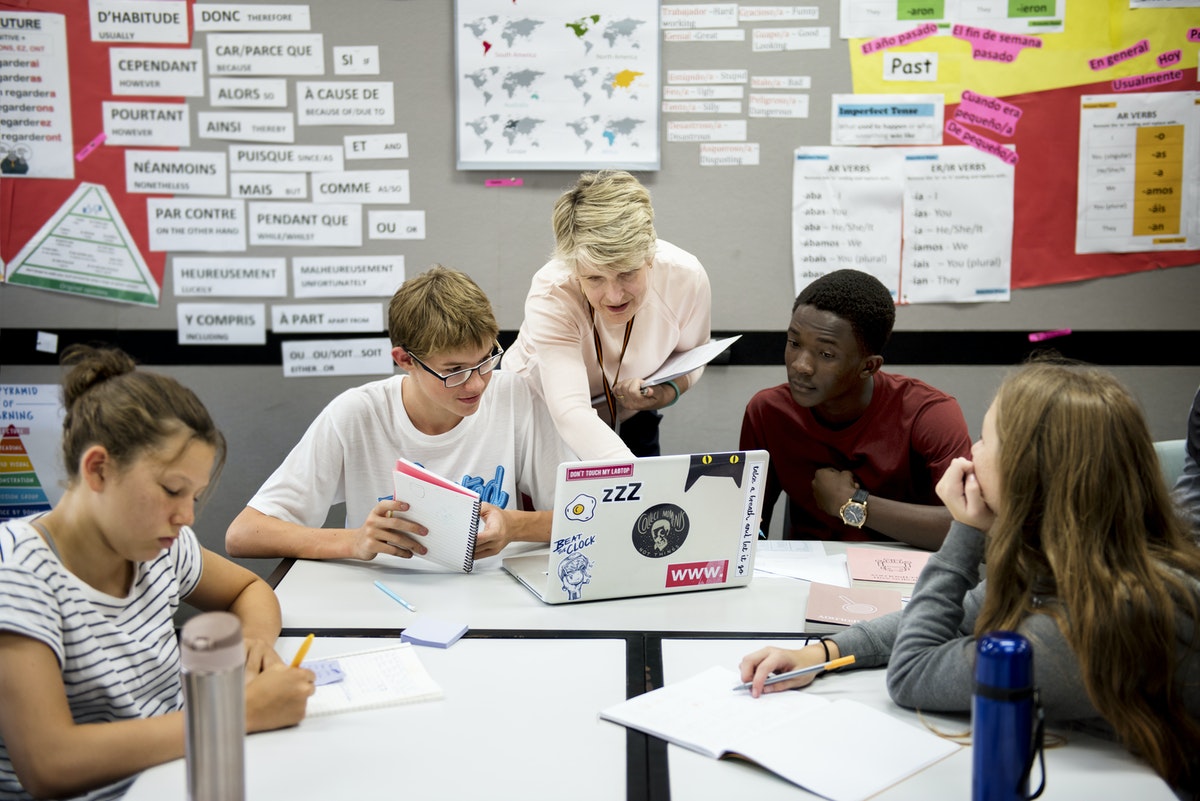
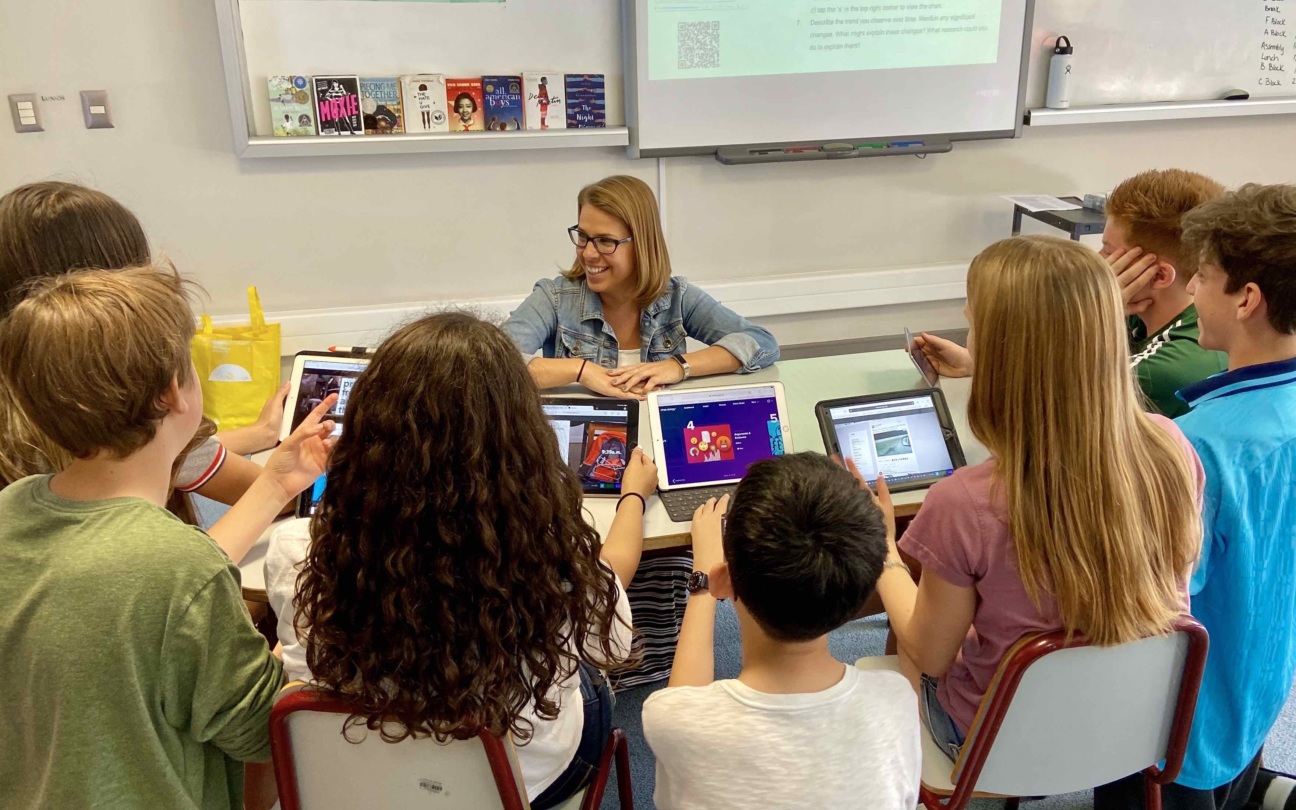

-1sbltxxq4FYxHrXrwJVLsCDNsXpqNa.webp)
-5Zp0pmSytvcuYDVs1LvuwplKuRneK0.webp)
